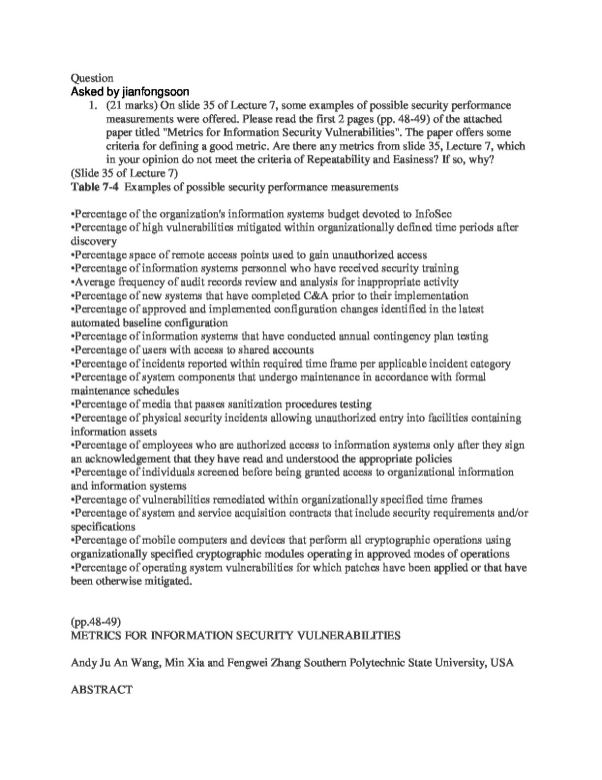University of the Cumberlands
EMSIS ISOL
Question 1 Many urban settings seem to discourage informal social control because: a. Designers prefer to rely on formal social control. b. Economic and political priorities took precedence over security. c. Crime rates dropped. d. It is no longer needed. Ans: b The probability that a resident will act or intervene on an observed crime depe
...[Show More]
Question 1 Many urban settings seem to discourage informal social control because: a. Designers prefer to rely on formal social control. b. Economic and political priorities took precedence over security. c. Crime rates dropped. d. It is no longer needed. Ans: b The probability that a resident will act or intervene on an observed crime depends on: ANS: All of the above Question 2 According to results of studies in Detroit, all features but _______ could help decrease the probability of crime: a. Condition and maintenance of buildings b. Mixtures of land use c. Pets on the premises d. Rates of pedestrian traffic Ans: c Question 3 Crime Prevention Through Environmental Design (CPTED) should be treated with caution because: a. It takes too much time to implement. b. Most law enforcement agencies will not cooperate. c. It has been proven to be ineffective. d. Many projects may not be cost effective. Ans: d Question 4 Building interior security strategies focus on providing defense against: a. Unauthorized entry to buildings b. Unauthorized entry to personal space c. Unauthorized entry to building sites d. Unauthorized entry to neighboring areas Ans: b Question 5 CPTED current projects in cities across the country have: a. Kept businesses out of the area to discourage criminals from coming in b. Cut outside lighting c. Reduced
[Show Less]











